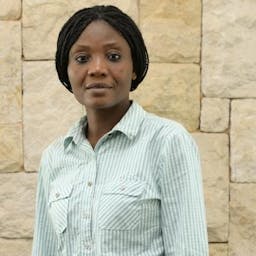WOMEN ON THE ROAD TO RIO+20: THE FUTURE THE AFRICAN WOMAN WANT
Jan 21, 2015
Story
The RIO+20 summit expected to take off in a few days time present a “once-in-a –generation opportunity” for the whole of humanity to chart a course for the future with a focus on environmental governance and green economy. The whole world is expectant and looking unto world leaders to truly behave like leaders and take positive, cutting edge decisions that will interrogate social structures that continue to reproduce pervasive gender inequality skewed against women all over the world.
Women from all parts of the world have been voicing their demands in respect of the future they want. There is a striking pattern of the kind of future women from different parts of the world have been advocating for. In simple terms women want a future devoid of discrimination, inequality and injustice.
The green economy must include women by ensuring it addresses their inequality and at the same time empower and create opportunities to project their leadership in all spheres of societal life. The green economy should not serve to deepen their historical marginalization. As much as women all over the world are almost demanding a similar future, there are still some points of differentiations which are defined by their geographical location and current social realities.
The future the African woman is conceptualizing now and advocating for definitely has a lot do with her lived experiences and current social realities which is defined by the state of the underdevelopment of the African continent nurtured by poor leadership.
For the African woman, engaging the theme of the RIO+20 summit itself is very important issue which has a link to the neoliberal policies implemented in Africa in the last 20 years. The impacts of the neoliberal policies implemented by the various international Financial Institutions (IFIs) indicate that the African woman may not be able to take advantage of the benefits inherent in the green economy.
Current happenings in Africa linked to the pursuit of neoliberal policies which lacks a human and social objective with the benefit of hindsight is not consistent with the much touted green economy in the context of poverty reduction. The land grabs, general social inequality, devastating impacts of climate change, gender based violence and crises in the fuel food and financial markets which have left the African woman weak socially, economically, politically and unprepared to benefit from the green economy are major issues which the green economy must take into account.
To ensure that the African woman does not remain a mere spectator in the green economy paradigm there is need to define the role of the IFIs in the green economy. Put differently, how will the current neoliberal policies been pursued in Africa interact with the green economy? How is the new focus on “gender equality as smart economy” linked to the implementation of green economy in Africa? These are important underlining issues which will either jeopardize or deliver the future the African woman wants.
The green economy or green development is not a hundred meters dash. It is a journey which is starting for different countries and different major groups at different levels of development. As the RIO+20 summit begins, world leaders must be conscious of their responsibilities and their leadership roles in ensuring that a more equitable future is guaranteed for all irrespective of age sex, religion or political opinion. Rio+20 must deliver a better deal for the African woman now and ensure a brighter future for her.
.




